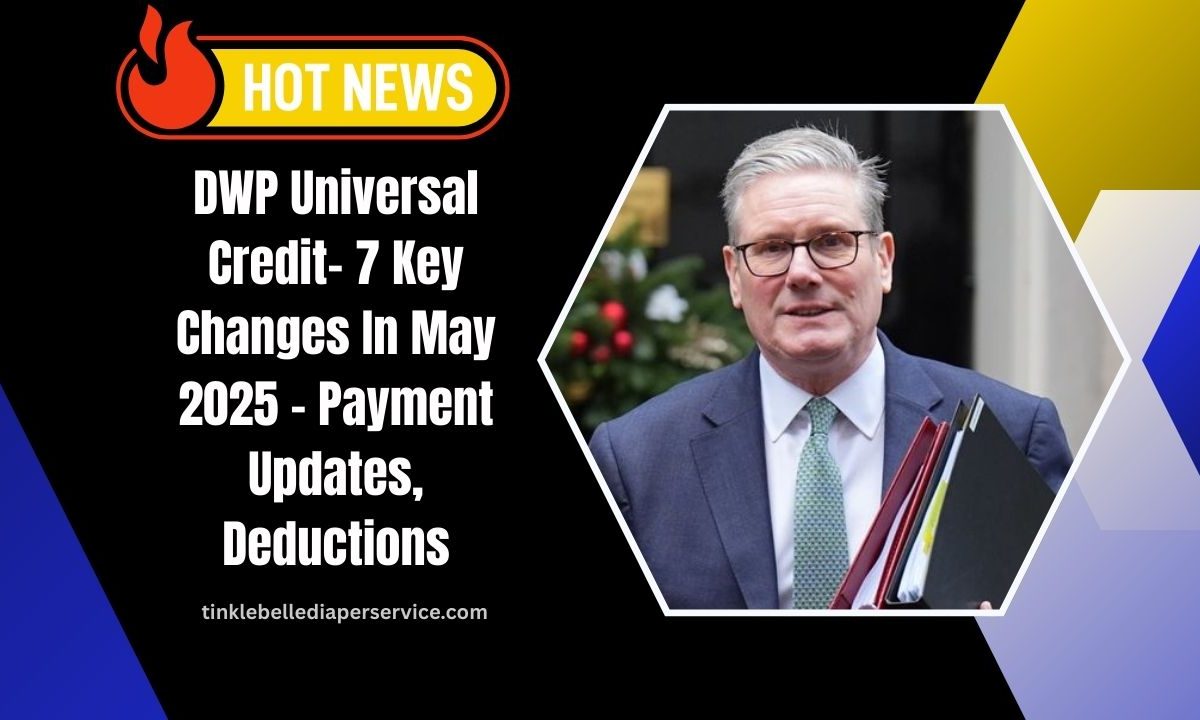In May 2025, the Department for Work and Pensions (DWP) implemented significant changes to Universal Credit, affecting millions of claimants across the UK.
These adjustments encompass payment schedules, deduction caps, earnings thresholds, and health-related benefits.
Understanding these changes is crucial for current and prospective claimants to ensure they receive the correct entitlements.
1. Bank Holiday Payment Adjustments
Due to the Spring Bank Holiday on Monday, May 26, 2025, Universal Credit payments scheduled for May 24–26 were advanced to Friday, May 23.
This measure ensures claimants receive their benefits without delay during the holiday period.
2. Accelerated Migration from ESA to Universal Credit
The DWP has increased the pace of transitioning claimants from Employment and Support Allowance (ESA) to Universal Credit.
As of May 2025, approximately 200,000 ESA recipients have been migrated, with plans to issue 83,000 migration notices monthly. Claimants must respond within three months to retain eligibility and avoid potential benefit loss.
3. Introduction of the Fair Repayment Rate
To alleviate financial pressure on claimants, the DWP has reduced the maximum deduction from Universal Credit payments for debts and overpayments from 25% to 15% of the standard allowance.
This change, effective May 2025, benefits around 1.2 million households, allowing them to retain approximately £35 more per month.
4. Revised Administrative Earnings Threshold (AET)
The Administrative Earnings Threshold has been updated to reflect changes in the National Living Wage. The new thresholds are:
- Single claimants: £952 per month
- Couples: £1,534 per month
Claimants earning below these thresholds are required to engage with work coaches and demonstrate efforts to increase their earnings.
5. Annual Payment Uprating
From May 13, 2025, Universal Credit payments have been increased by 1.7%, aligning with the Consumer Prices Index (CPI) inflation rate. This adjustment translates to an average annual increase of £150 for approximately 5.7 million families.
6. Final Increase to LCWRA Payment
The Limited Capability for Work and Work-Related Activity (LCWRA) element has seen its final increase, rising from £416.19 to £423.27 per month.
From April 2026, this amount will be halved for new claimants and frozen until 2030, as part of broader welfare reforms.
7. Cessation of Additional Cost of Living Payments
The DWP has confirmed that no further Cost of Living Payments will be issued beyond those provided between 2022 and 2024.
However, the Household Support Fund has been extended until March 31, 2026, with an additional £742 million allocated to assist low-income households.
| Change | Details |
|---|---|
| Bank Holiday Payment Adjustments | Payments due May 24–26 advanced to May 23 |
| ESA to Universal Credit Migration | 83,000 migration notices issued monthly; 200,000 claimants transitioned |
| Fair Repayment Rate | Deduction cap reduced from 25% to 15% of standard allowance |
| Administrative Earnings Threshold (AET) | Increased to £952 (single) and £1,534 (couples) per month |
| Annual Payment Uprating | 1.7% increase effective May 13, 2025 |
| LCWRA Payment Adjustment | Final increase to £423.27; halved for new claimants from April 2026 |
| Cost of Living Payments | No further payments; Household Support Fund extended with £742 million funding |
The changes implemented in May 2025 reflect the DWP’s ongoing efforts to streamline the Universal Credit system and provide targeted support to claimants.
By understanding these updates, individuals can better navigate their entitlements and ensure they receive the appropriate assistance.
FAQs
How do I know if I need to migrate from ESA to Universal Credit?
The DWP will send a migration notice to affected claimants. Upon receipt, you have three months to complete your Universal Credit application to maintain benefit continuity.
Will the reduction in deduction caps affect my current repayments?
Yes, starting May 2025, the maximum deduction from your Universal Credit for debts and overpayments is capped at 15% of your standard allowance, potentially increasing your monthly income.
Are there any new cost of living payments scheduled?
No, the DWP has stated that no additional Cost of Living Payments will be made beyond those issued between 2022 and 2024. However, support is available through the extended Household Support Fund.

